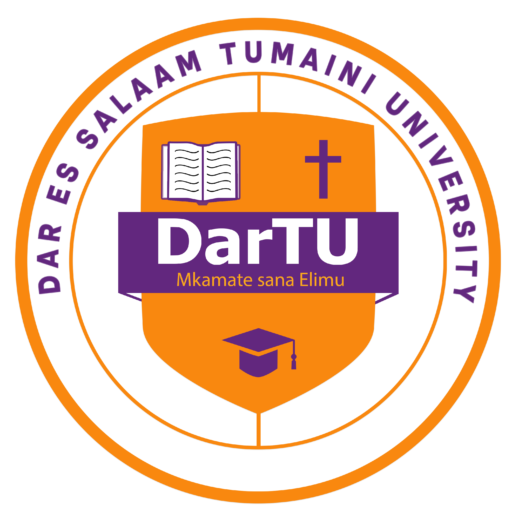CYBER SECURITY CENTER
CERTIFIED PENETRATION TESTING (CPT) COURSE
Dar es Salaam Tumaini University (DarTU) has introduced a professional cybersecurity course namely Certified Penetration Tester (CPT) for Information Security Officers, Auditors, Managers, and Risk/Vulnerability Analysts. CPT prepares students to conduct successful penetration testing for a modern enterprise, including on-premise systems. Students will learn the methodology and techniques used by real-world penetration testers to identify and exploit vulnerabilities and show real business risk facing organization. The course material is complemented with more than 12 practical lab exercises concluding with an intensive, hands-on Capture-the-Flag exercise in which every student will conduct a penetration test against a sample target organization and demonstrate the knowledge he/she have mastered.
CPT provide security assessments by mimicking activities hackers engage in. These pen tests, part of a suite of ethical hacking activities, allow institutions to predict and fight against new types of cyber threats including malware and ransomware and offer mitigations. Every time technology evolves, new cybersecurity concerns appear. Penetration testers are now an essential part of the front lines, preventing disruption and securing sensitive data.
Course Duration: 6 Days
Expert Malware Analysis and Reverse Engineering EMAR Course
Malware Analysis and Reverse Engineering Professional (EMAR) is a hands-on course that teaches students the knowledge and skills necessary to dissect malicious software in order to understand its mechanics and purpose. EMAR provides a holistic approach to dissecting malware. You will also learn more about Reverse Engineering and add an additional skill to your arsenal, allowing you to dissect a product to understand its blueprint or how it was made.
The course will also focus on the analysis of ransomware; we’ll teach you how to perform cryptanalysis on ransomware infected files, methodologies to uncover Command and Control Centers for ransomware and setting up of malware analysis laboratory.
Course Duration: 10 Days
CYBERSECURITY TRAINING FOR HEALTHCARE
We introduce a training on Cybersecurity in Healthcare. The aim of this course is to raise awareness and understanding the role of cybersecurity in healthcare. The course will cover both theoretical and practical aspects of cybersecurity. Furthermore, we offer helpful resources that cover different aspects of cybersecurity.
The course will take you through the concept of Cyber Hygiene that describes how to improve cybersecurity within healthcare organizations in practical ways. Participants will be able to analyze how organizational culture affects cybersecurity, the cybersecurity culture, focusing on the interaction between human behavior and technology and how organizational factors can boost or diminish the level and attention to cybersecurity in healthcare.
Course Duration: 5 Days
CYBER SECURITY RISK ASSESSMENT AND BUSINESS CONTINUITY MANAGEMENT (CBCP-RA) COURSE
CBCP-RA is an intensive and hands-on course on Business Continuity and Risk Assessment with a focus on Cybersecurity. Business continuity planning (BCP) is the process an organization or institution undergoes to create a prevention and recovery system from potential threats such as natural disasters or cyber-attacks. It is designed to protect personnel and assets and make sure they can function quickly when the disaster strikes. Through this course, participants will be aware of hazards and risk they didn’t realize that they were around their workplace. Also, they will gain the skills to identify mission-critical continuity needs, define sources of risk, create an incident response team charter, implement a Business Continuity Management System (BCMS), and improve organizational resilience. At the end of the course, participants will be able to prepare professional reports and documentations on Business Continuity, ICT Security policy and Risk Analysis.
Course Duration: 5 Days
CYBERSECURITY FOR AVIATION: ASSESSING RISK IN AIR TRAFFIC MANAGEMENT: METHODS, TOOLS AND TECHNOLOGIES.
Civil aviation was once considered the safest transport mode in the world and it comprises the largest interconnected system of information and communication technology. Air traffic management (ATM) comprises a complex system of systems, traditionally characterized by custom communication protocols and self-contained systems used for exchanging information between entities, which include aircraft, air traffic control, aerodrome control towers, aircraft operators and flow managers. On the other end, Cyber-attacks are increasing in quantity and persistence, so the consequences of a successful malicious cyber-attack on civil aviation operations could be severe nowadays. New technologies, extension of connectivity and their integration in the aviation industry, especially in the field of the ATM, increase the risk to these critical assets
DarTU presents a three days cybersecurity training for the aviation industry. Students will examine the current ATM system and go through examples of current vulnerabilities along with options for risk mitigation. The expected evolution of ATM in the short and medium term is then explored, along with potential emerging threats and vulnerabilities. We’ll present malware threats affecting the aviation industry and study ways of analyzing them.
Course Duration: 5 Days
GSM ETHICAL HACKING COURSE
While the use of GSM/GPRS/UMTS/n-G/LTE networks is increasing, the emergence of widely available hardware and software tools for GSM hacking makes easier even for script kiddies to hack these networks. Financial transactions and financial related data which are exchanged over these networks are “hot” targets to cyber criminals. Similarly, hackers have been hunting all sorts of communications over GSM and similar networks for the purpose of privacy intrusion
DarTU has designed a course that will add knowledge in detecting security threats against GSM networks. As such, this course will teach and demonstrate hacking techniques and tools used in breaking GSM security. The course makes use of research hardware as well as open source and freely available software tools to demo attacks on GSM networks. The attacks target both mobile users and the networks, ranging from sniffing the signaling traffic to tracking and performing denial of service to the subscribers.
Course Duration: 6 Days
